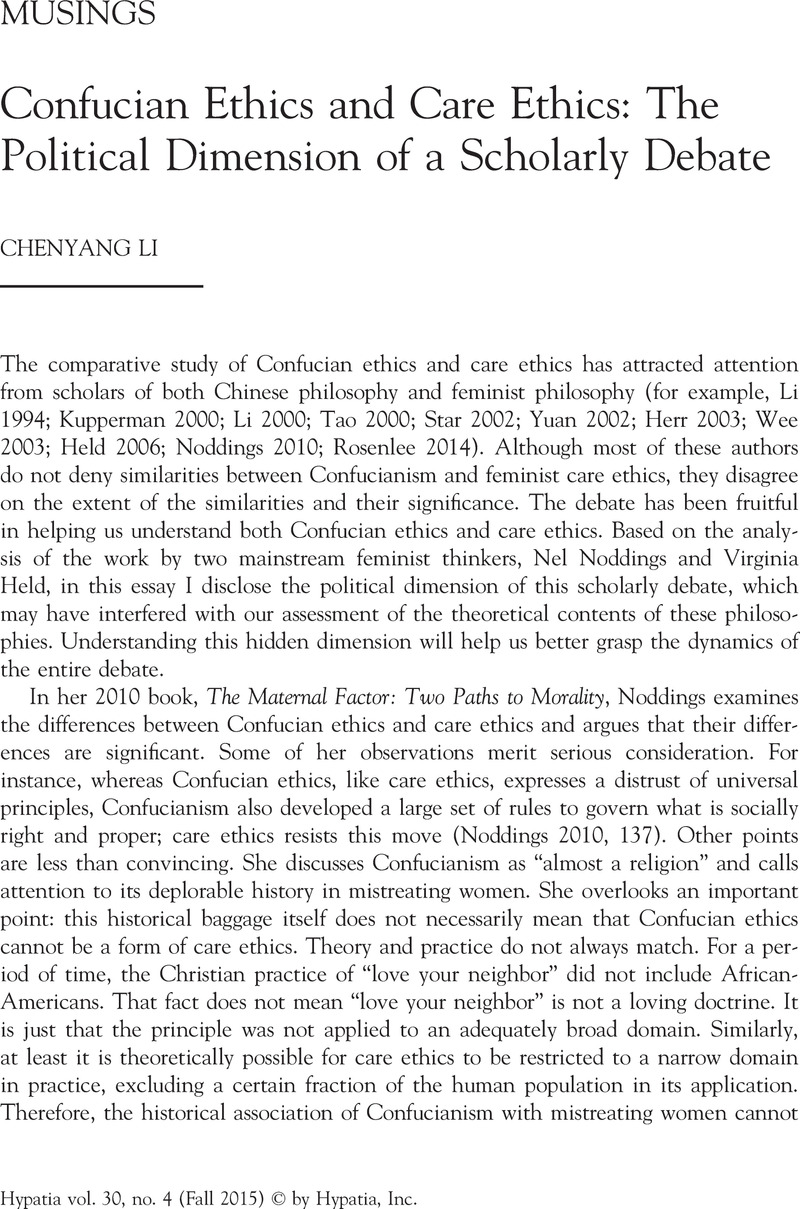Crossref Citations
This article has been cited by the following publications. This list is generated based on data provided by Crossref.
Aloni, Nimrod
2020.
Locally grounded, universally binding: The benefit of incorporating traditional care ethics, East and West, into current moral education.
Educational Philosophy and Theory,
Vol. 52,
Issue. 1,
p.
98.
Gary, Mercer E.
2022.
From care ethics to pluralist care theory: The state of the field.
Philosophy Compass,
Vol. 17,
Issue. 4,
Zhu, Qin
and
Clancy, Rockwell
2023.
Constructing a role ethics approach to engineering ethics education.
Ethics and Education,
Vol. 18,
Issue. 2,
p.
216.





